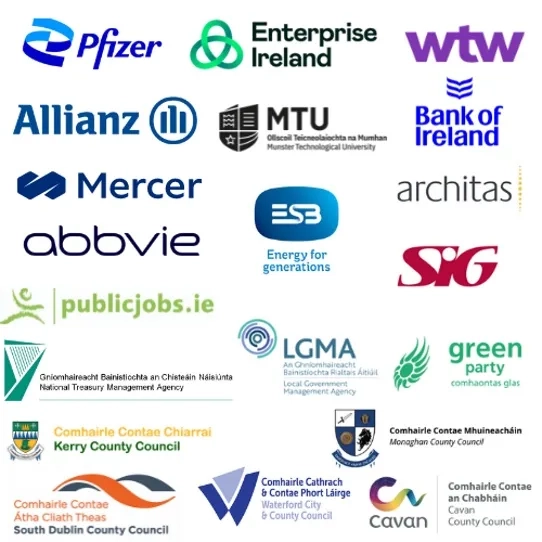Working life
Disability disclosure and how AHEAD can help you in your career
8 Oct 2024, 10:57
AHEAD is an Irish non-profit organisation committed to promoting full access to education and employment for students and graduates with disabilities through ensuring individuals with disabilities have the opportunities and accommodations they need to succeed. AHEAD’s programmes include the Willing Able Mentoring (WAM) programme, their work placement programme and GetAHEAD, which works to upskill graduates with disabilities.
.webp)
Disclosure
Q: Why should I tell employers about my disability? How should I go about it?
Disclosing your disability is a very personal decision and is a very important aspect of having a disability. The decision to disclose to an employer is often made by weighing up the benefits of receiving reasonable accommodation, workplace considerations and raising awareness against the cost of labelling and potential discrimination or being treated differently.
One of AHEAD’s key publications is their disclosure guide, which includes an action plan that you can walk through to guide you in the decision to disclose. The booklet also discusses relevant legislation, your rights and our suggested approach to disclosure if you decide to do so.
Accommodations/self-advocating
Q: How can I request accommodations from employers for interviews and in the workplace?
Requesting accommodations from employers is a crucial step in ensuring you have the tools and support to enable you to succeed. It is important to first identify your needs and determine what specific accommodations you might like to request in your interview or in your role. These could include assistive technologies, physical workplace adjustments, an ISL interpreter or flexible work hours for example.
Be clear about what accommodations you may need and why they would support you. Speak with your manager, interviewer or HR contact to discuss your needs. Many employers may have a specific named contact person sometimes referred to as access officer or disability liaison officer to request or discuss accommodations with.
Students and graduates with disabilities should be aware, that although there is no legal obligation to disclose your disability, an employer cannot provide you with a reasonable accommodation without being made aware of your disability.
Q: How do I know if an employer is inclusive of employees with disabilities?
There are many ways to determine if an employer is inclusive, you can look for some of the following:
- Company policies and values: Have a look at the employer’s website for their diversity and inclusion policies.
- Job descriptions and application process: Inclusive job postings typically include statements encouraging individuals with disabilities to apply and ask if you require any accommodations available during the hiring process.
- Partnerships: Inclusive employers often partner with disability advocacy organisations or may have received awards for their work in inclusivity.
- Attending training and events: You might see some employers speaking on LinkedIn for example about attending events, trainings, or even presenting on panels in which the focus is on their commitment to supporting employees with disabilities.
The WAM programme provides a variety of training opportunities for employers offering work placements on the WAM programme. WAM Employers (some of which you can see in the image below) also have opportunities to attend disability awareness training before the placements start, as well as training events throughout the year.

Employability skills
Q: What can AHEAD do to help me with my job search?
GetAHEAD Programme: Through our GetAHEAD Programme, AHEAD host various events including our Think Twice employability workshops as well as Building the Future, an annual careers fair specifically for students and graduates with disabilities.
Under GetAHEAD, AHEAD have compiled several resources that will support you in your hunt for a role. They also have some information on the key pieces of employment legislation specifically affecting students and graduates with disabilities. Other key information includes the various workplace grants and schemes available and some guidance around common reasonable accommodations in the workplace. AHEAD also have several publications including a practical workbook to help you maximise your job application, which includes some general tips, suggested approaches on how to structure your application form answers, competency examples where you can practice yourself.
You can find lots of helpful information on the AHEAD website, which covers job seeking tips, including CV writing, Interview tips and advice on writing a cover letter.
WAM Programme: Through their WAM (Willing Able Mentoring) programme, AHEAD provide paid and mentored work placements with inclusive employers, giving you hands-on experience and valuable insights into the workplace that can help improve your CV. All WAM placements offer a minimum of a six-month contract and in recent years there has been a significant increase in employers offering contracts for longer than six-months.
The roles are quite varied, and WAM have had jobs in Data Analytics, Business Analyst, Human Resources, QC Chemist, Communications/Marketing, Climate Action, various Graduate Programmes and Executive Officers in the Civil Service.
At the WAM programme, when you apply for a role, you have opportunities to request accommodations for the recruitment process, which may help you feel more confident going into the interview or assessment process.
It is also important to note that candidates who are offered a placement, must complete a WAM Needs Assessment before beginning their placement. The WAM Needs Assessment is conducted by a member of the WAM Team and will look at what reasonable accommodations, if any, the candidate will require in order to undertake the role they have been offered.
We would encourage any graduate with a disability, who has a minimum level 6 on the NFQ to join our WAMworks database, where you can keep up to date with any job opportunities our employers may have throughout the year. A wide range of employers are involved including the Civil Service, Local Authorities, Pfizer, Bank of Ireland and ESB.
81% of WAM graduates have successfully secured full-time employment as a direct result of their WAM placement, making it a valuable stepping stone in your career journey. Blogs like Tessa’s, which you can find here, highlight each individual WAM graduate’s personal experiences and their success following their WAM journey.
One graduate spoke about their WAM placement saying that it “genuinely changed my life, I was stuck on Disability and now I am back in the workforce in a field I am passionate about with a company that is supporting me. I gained so much confidence in speaking about having a disability and have even joined my company’s disability support group.”
Additionally, AHEAD has secured an agreement with the Department of Social Protection regarding the payment of Illness/Disability Payments, ensuring financial stability for participants. You can read more about this agreement here.
You can register on the WAMWorks database here to hear more about the roles available and start applying for WAM Placements. To learn more about the WAM programme, check out the AHEAD website.
Advertising feature by
This describes content that has been written and edited in close collaboration with the organisation, which has funded the feature; it is advertising. The content has been written by gradireland editors but the organisation has provided content, contributors and instruction and has approved the content.




